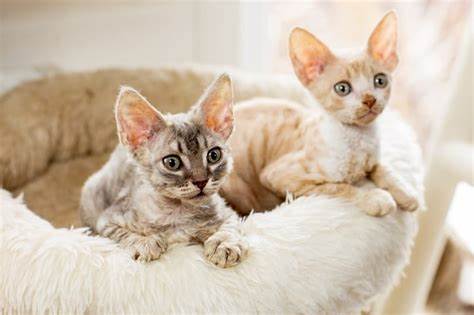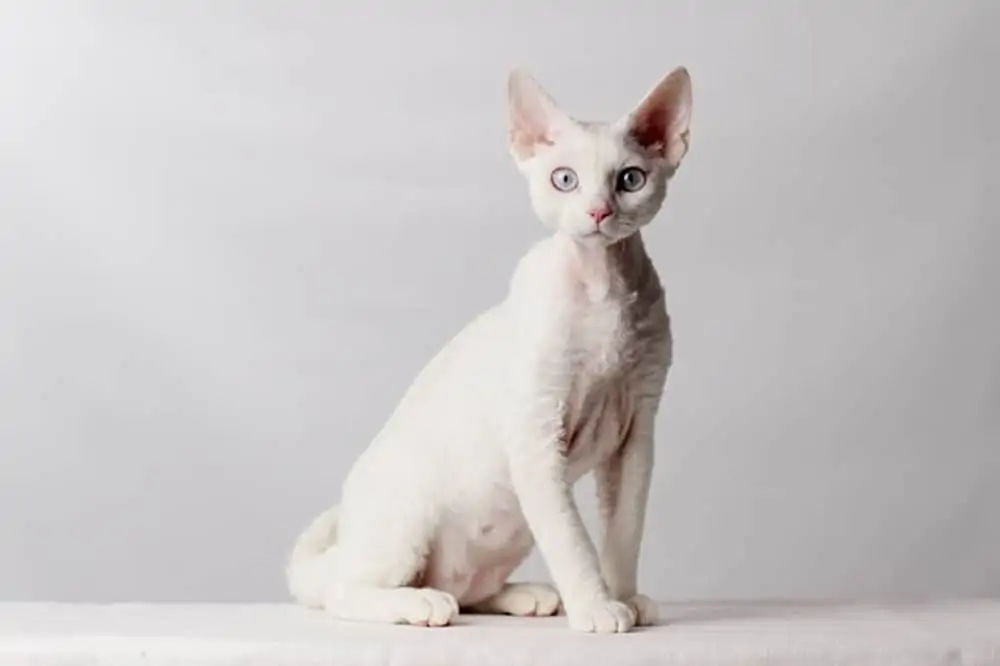Oregon Rex: The Extinct Curly-Coated Cat

History of the Oregon Rex
The Oregon Rex was a unique curly-coated cat breed that originated in the United States in the 1950s. It was first discovered in Oregon, where a spontaneous mutation produced a kitten with a short, tight, curly coat. This breed was developed alongside other Rex breeds, such as the Cornish Rex and Devon Rex, but it remained a distinct breed with its own genetic mutation.
Despite efforts to establish the breed, the Oregon Rex gradually disappeared by the 1970s as it was crossbred with Cornish Rex cats, leading to its extinction. Today, no purebred Oregon Rex cats exist, making it a historical breed that contributed to the development of modern Rex cats.
Popularity of the Oregon Rex
During its brief existence, the Oregon Rex gained some popularity among cat enthusiasts who admired its soft, curly fur and playful personality. However, due to its limited gene pool and similarities to the Cornish Rex, it never achieved widespread recognition before becoming extinct.
Physical Traits of the Oregon Rex
The Oregon Rex had a small-to-medium-sized body with a distinct, short, curly coat and a sleek, athletic build.
• Coat: Short, dense, and curly, with a texture similar to the Cornish Rex but slightly tighter.
• Colors: Came in a variety of solid, tabby, and bi-color patterns.
• Size: Medium-sized, weighing between 6 to 10 pounds.
• Head & Expression: Wedge-shaped head with large, alert eyes.
• Ears: Large and wide-set, giving an elegant, inquisitive look.
• Tail: Long, tapering, and covered in short curls.
• Body: Lean and muscular, designed for speed and agility.
Behavioral Traits of the Oregon Rex
The Oregon Rex was known for its intelligent, playful, and affectionate nature, much like other Rex breeds.
• Highly Social: Enjoyed being close to people and following them around.
• Energetic and Agile: Loved jumping, climbing, and interactive play.
• Intelligent and Curious: Enjoyed puzzle toys and learning tricks.
• Affectionate and Loving: Formed strong bonds with family members.
• Vocal but Not Overwhelming: Communicated with soft chirps and trills.

Why Did the Oregon Rex Become Extinct?
The Oregon Rex disappeared mainly due to crossbreeding with Cornish Rex cats, which shared a similar appearance and coat texture. Over time, breeders favored the Cornish Rex and Devon Rex, leading to the Oregon Rex fading out as a distinct breed.
Additionally, the breed’s small gene pool made it difficult to maintain genetic diversity, further contributing to its extinction.
Oregon Rex’s Influence on Modern Cat Breeds
While the Oregon Rex no longer exists, its genetic traits live on in other curly-coated breeds, including:
• Cornish Rex – Shares a similar curly coat and athletic build.
• Devon Rex – Has large ears and a short, wavy coat but a softer appearance.
• Selkirk Rex – Features thicker curls and a rounder face than the Oregon Rex.
Comparisons to Other Rex Breeds
Compared to the Cornish Rex, the Oregon Rex had a tighter, denser curl pattern, whereas the Cornish Rex’s coat was wavier and softer. Unlike the Devon Rex, which had a pixie-like face, the Oregon Rex had a sleeker, more refined appearance.
Legacy of the Oregon Rex
Although the Oregon Rex no longer exists as a distinct breed, it played a role in the development of modern Rex cats. The breed is a reminder of how genetics and selective breeding shape the evolution of domestic cats.
